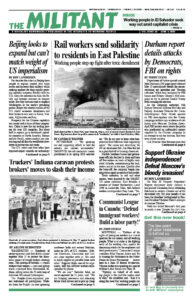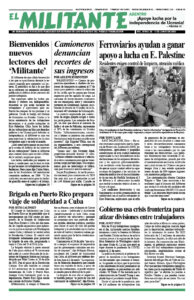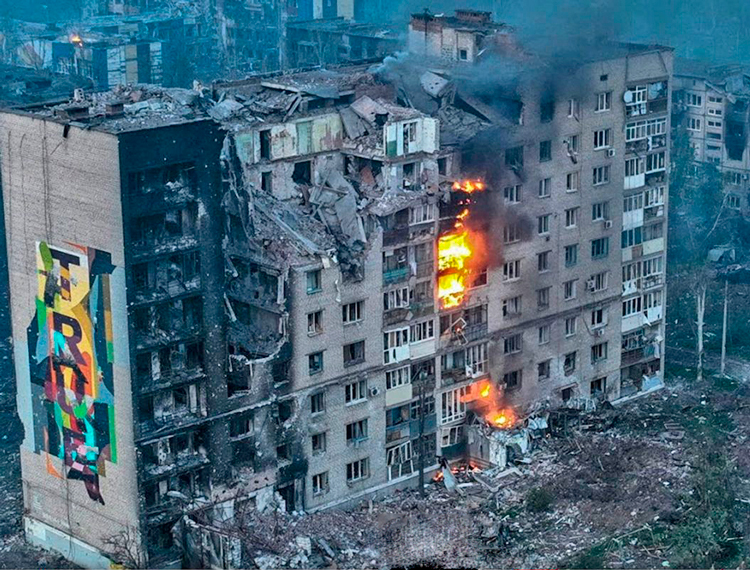On May 20 Yevgeny Prigozhin’s Wagner mercenary army claimed it had pushed Ukrainian forces defending Bakhmut in eastern Ukraine out of the devastated city. For nine months it has been the bloodiest battleground in Russian President Vladimir Putin’s attempts to conquer Ukraine.
Putin has hailed Moscow’s first gain in nearly a year. Despite the city’s limited strategic value, the assault cost tens of thousands of deaths, the majority on the Russian side. Ukrainian forces have advanced to occupy hills flanking the west of Bakhmut. To hold the city, more Russian reinforcements are being sent.
Meanwhile, Ukrainian forces are being readied for counteroffensives along the 600 miles of the front. Several pro-war Russian commentators expressed doubts about Moscow’s need to seize Bakhmut.
It “will turn out to be a Pyrrhic victory,” commander Igor Girkin said. Girkin was a defense minister in Moscow’s puppet government in the so-called Donetsk People’s Republic in 2014.
“The best strike units of the Russian Armed Forces are exhausted from months of fighting. Stocks of ammunition are minimal,” Girkin says. If Ukrainian forces attacked in the Donetsk region, toward Mariupol, they would face troops “that are badly shattered and ‘thinned out’ by redeployment of reserves to Bakhmut.”
Kyiv repeatedly sends messages in Russian to Moscow’s troops, urging them to surrender under protection of the Ukrainian “I Want to Live” program. It provides secure contact details for Russian soldiers or their wives or mothers to use.
Working people bear brunt of war
Moscow’s invasion has devastated Ukraine’s economy, cutting output by almost 30%. Inflation has reached 26.6% and unemployment is over 20%.
For older Ukrainians trying to get by on a pension, life is particularly tough. More are turning to city street trading to make ends meet.
“With the outbreak of war, it has become worse,” 60-year-old Oleksandr told the Kyiv Post at a street market in the capital. “I used to repair cars, jeeps, and anything with a petrol engine,” the former mechanics teacher at the Kyiv Polytechnical Institute said. Having lost a leg, he can’t do that now.
His pension is only $76 per month “and they say electricity and water will become more expensive soon.” Now he is selling “my things. For food, for a living.”
Amid the dislocations of the war, the Ukrainian parliament discussed a draft law May 2 allowing the new owners of companies to rip up union contracts, opening the door to further assaults on workers’ wages and conditions. Mykhailo Volynets, a leader of the Confederation of Free Trade Unions of Ukraine and a member of parliament, moved to amend the law to protect workers’ rights.
A key aim of the Independent Trade Union of Mineworkers of Ukraine (NPGU) “is to help our members who were drafted into the army and the members of their families as well as displaced persons and those living under shelling near the frontline,” Pavlo Holota, a leader of the NGPU told the U.K.-based Ukraine Solidarity Campaign in March. They’ve also organized actions around unpaid wages and boss attacks on working conditions.
Members of the NGPU resisting Moscow’s occupation in parts of eastern Ukraine have had their union banned by Kremlin authorities.
Kremlin arrests cultural figures
The Putin regime has waged a campaign to suppress criticism of the war since it started. The repression has intensified as Moscow’s losses have mounted. A Moscow court handed opposition activist Mikhail Krieger a seven-year prison sentence May 17 on charges of “justifying terrorism” and “inciting hatred.” He was arrested in November after posting anti-Putin comments.
Just ahead of his sentencing Krieger addressed the court.
“I am being persecuted for my anti-war and now openly pro-Ukrainian position. I don’t try to hide it. To the contrary, I try to make it clear to as many people as possible at every opportunity.” He said he hoped “for a Ukrainian victory in every way,” because “if Russians are to win their freedom, it will only come out of this victory.”
Krieger told the judge and prosecutors that his perspective defends their rights as well as his, “so that your sons, brothers, fathers and husbands are not taken off to fight in this criminal war and returned to you in a body bag. It seems to me that your stake in this is as great as mine. Only you are more afraid.”
Putin’s assault on opposition to the war is also dealing blows to Russian culture. A Moscow court ordered the arrest of film producer Alexander Rodnyansky and theater director Ivan Vyrypaev April 27. The charges in absentia were for “spreading false information” about the Russian army. Both live outside Russia.
Kyiv-born Oscar-nominated Rodnyansky has been among the most influential figures in Russian cinema in recent decades. He says his return to Russia would only be possible “when the war is over, when Putin is over.”
Vyrypaev, a popular playwright and actor, who has lived and worked in Warsaw for several years, has been placed on the Kremlin’s federal wanted list.


